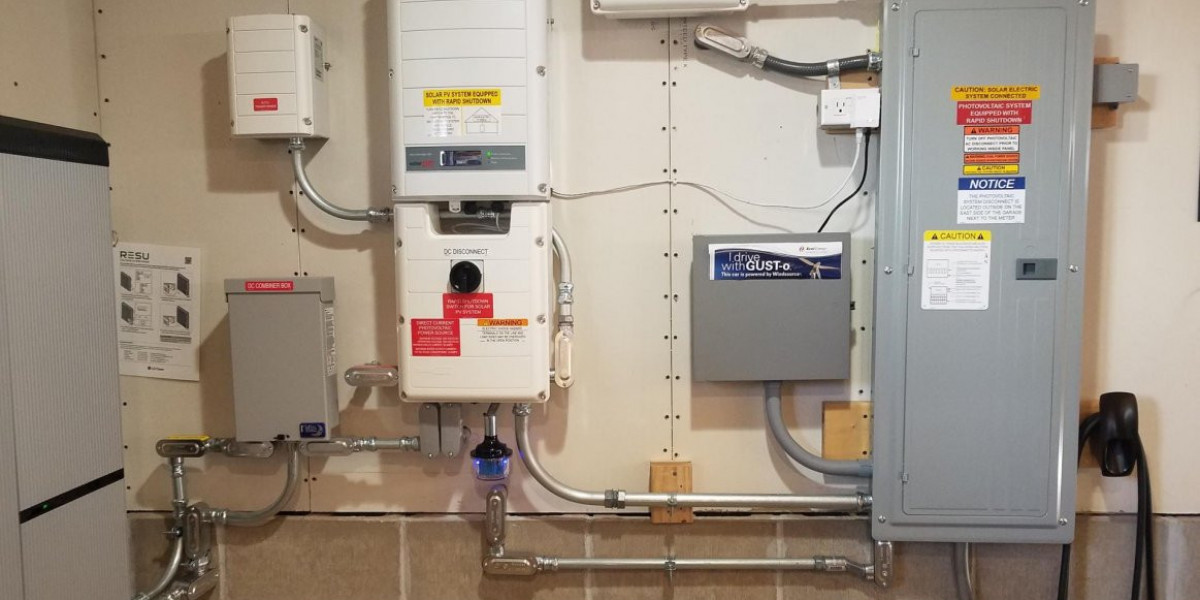Solar Hybrid Inverter Market: Paving the Way for Efficient Energy Conversion
In recent years, the renewable energy sector has witnessed remarkable growth, and solar energy has emerged as a frontrunner in the quest for sustainable power sources. The solar hybrid inverter market plays a pivotal role in this transformation by enhancing energy conversion efficiency and contributing to a cleaner future. In this comprehensive article, we delve into the world of solar hybrid inverters, exploring their benefits, functionality, market trends, and more.
Understanding Solar Hybrid Inverters
At its core, a solar hybrid inverter is a sophisticated device that combines the capabilities of both a solar inverter and a battery inverter. Its primary function is to manage and optimize the flow of electricity between solar panels, batteries, and the grid. This seamless integration ensures efficient energy production, storage, and consumption, thus reducing reliance on conventional energy sources.
Key Benefits of Solar Hybrid Inverters
1. Enhanced Energy Utilization: Solar hybrid inverters maximize the utilization of solar energy by intelligently distributing power to the grid, batteries, and connected loads. This reduces wastage and increases overall energy efficiency.
2. Energy Independence: By incorporating battery storage, these inverters enable households and businesses to store excess solar energy for later use. This not only provides a backup during power outages but also reduces dependence on the grid.
3. Cost Savings: Solar energy is not only environmentally friendly but also cost-effective in the long run. Solar hybrid inverters amplify these benefits by allowing users to offset their energy bills through surplus energy generation.
Functionality and Working Mechanism
Solar hybrid inverters operate through a sophisticated algorithm that determines the most efficient energy distribution strategy. During periods of ample sunlight, the inverter directs excess energy to charge connected batteries. Once the batteries are fully charged, any surplus energy can be sent to the grid, earning credits or compensation under net metering programs.
Market Trends and Projections
The solar hybrid inverter market is experiencing rapid growth, driven by increasing awareness of renewable energy benefits, government incentives, and advancements in technology. The integration of smart features, such as remote monitoring and energy management, further propels market expansion.
According to industry experts, the market is projected to continue its upward trajectory, with a compound annual growth rate (CAGR) of 8.90% from 2023 to 2032. This growth can be attributed to the growing adoption of solar power solutions, rising energy costs, and the shift towards sustainable living practices.
Factors Driving Adoption
1. Environmental Concerns: With global environmental challenges in the spotlight, consumers are increasingly drawn to eco-friendly energy solutions like solar hybrid inverters.
2. Energy Security: Solar hybrid inverters offer a reliable source of power during grid failures, making them an attractive option for regions prone to blackouts or unstable power supply.
3. Return on Investment: The substantial savings on energy bills and potential income from excess energy sold to the grid make solar hybrid inverters a financially appealing investment.
Challenges and Future Outlook
While the solar hybrid inverter market showcases immense potential, certain challenges persist. These include initial installation costs, limited energy storage capacities, and regulatory hurdles. However, ongoing research and development efforts aim to address these issues, paving the way for more efficient and cost-effective solutions.
In conclusion, the solar hybrid inverter market size stands as a cornerstone of the renewable energy revolution. Its ability to harness solar energy, store it efficiently, and contribute to a sustainable energy future makes it a vital component of the global energy landscape. As technology advances and economies of scale drive down costs, we can anticipate even greater adoption of solar hybrid inverters in homes, businesses, and communities worldwide. Embracing this transformative technology is not only a practical choice but also a step towards a cleaner and brighter future.
Related Reports:







